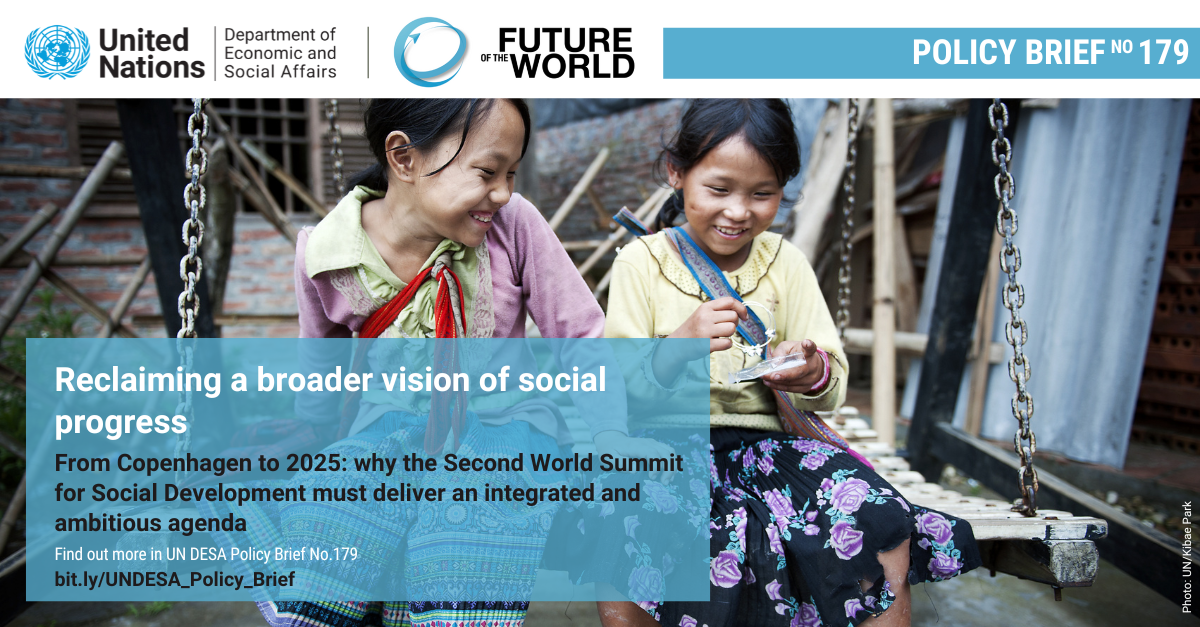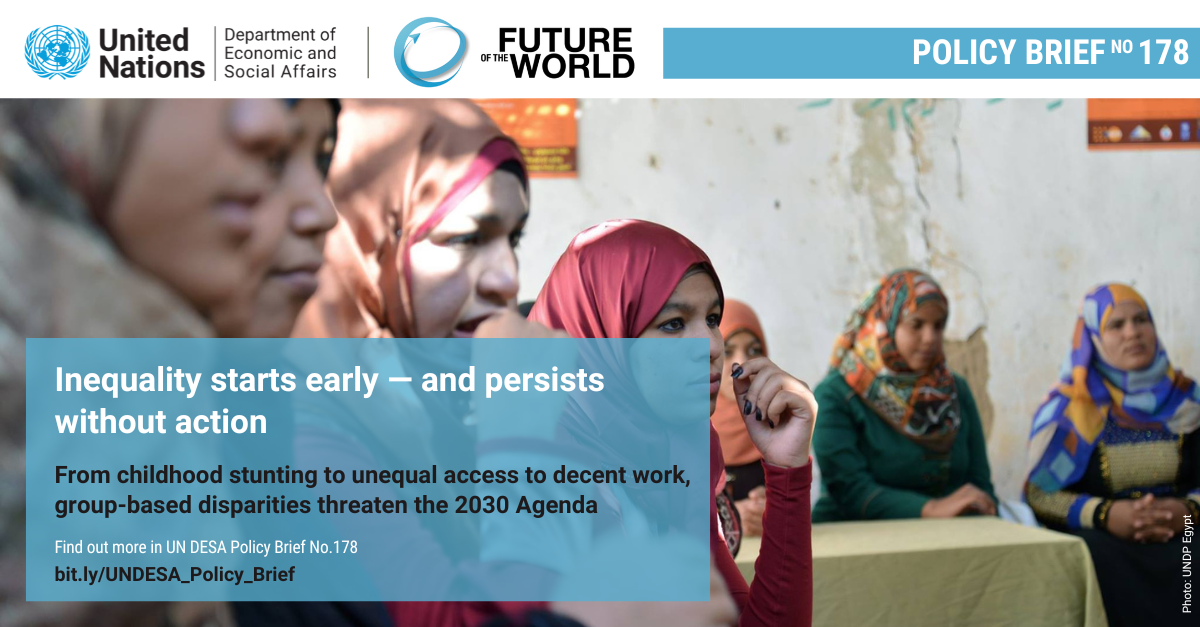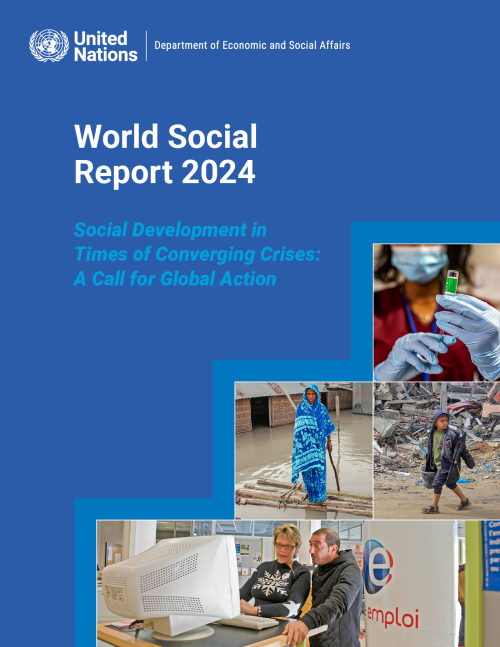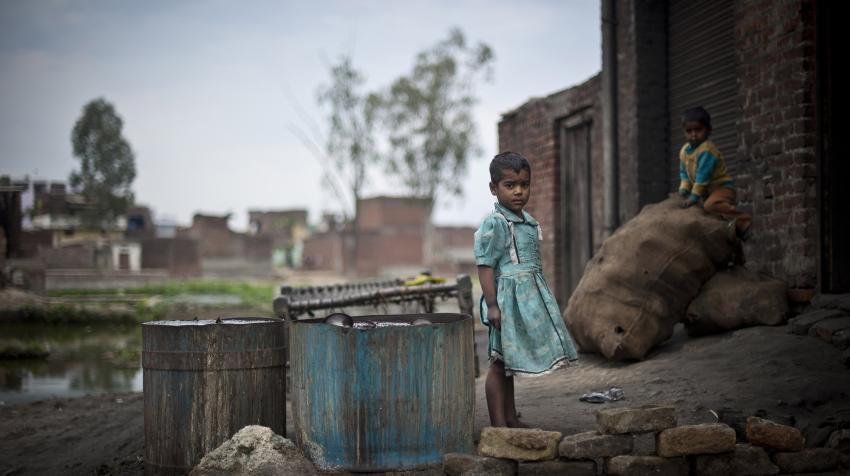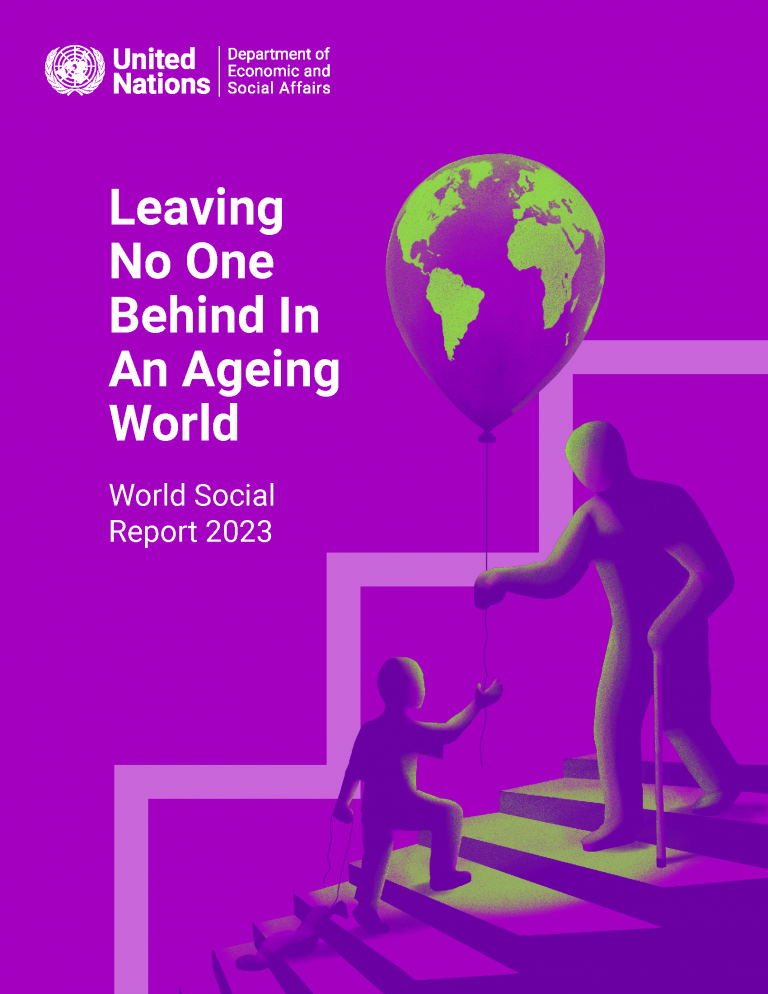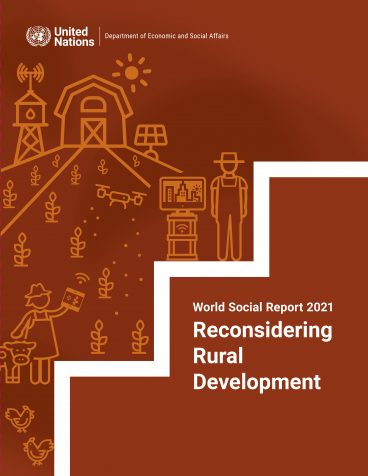Publications
Displaying 1 - 10 of 14
Policy Briefs |
Trust is fundamental to social cohesion, effective governance and the achievement of the Sustainable Development Goals. Yet trust in public institutions is declining worldwide. More than half of the global population reports little or no trust in their government, and evidence shows that younger generations are losing trust at a faster rate than previous cohorts. Without action, this downward trend is likely to intensify, weakening the social contract and increasing risks of polarization and social instability. The brief highlights that declining trust is not driven by a single crisis, but by long-term policy choices that have contributed to inequality, economic insecurity and…
Policy Briefs |
This policy brief, Gender Matters in an Ageing World: The Case for Gender-Responsive Policies highlights how rapid population ageing is reshaping societies and why older women must be at the centre of gender equality efforts. Women already comprise the majority of older persons globally, and their numbers are projected to rise sharply—especially in low- and middle-income countries. While women live longer than men on average, they are more likely to experience disability, chronic illness and economic insecurity in later life. They are also more likely to live alone or in skip-generation households, often carrying significant caregiving responsibilities even as they age.The brief underscores…
UN General Assembly Reports on Social Development |
The present note contains the main findings of the World Social Report 2025: A New Policy Consensus to Accelerate Social Progress. Thirty years after the first World Summit for Social Development, the World Social Report 2025 warns of a mounting global social crisis marked by insecurity, inequality, and declining trust. While past decades have brought progress in poverty reduction and well-being, millions remain trapped in precarious livelihoods, informal work, and economic instability. Inequalities persist across income, gender, and generations, while climate change and rapid technological shifts deepen divides. Trust in institutions is eroding, social cohesion is weakening, and…
Policy Briefs |
This UN DESA policy brief revisits the landmark 1995 World Summit for Social Development in Copenhagen, which marked a pivotal moment in global efforts to place people at the centre of development. The Summit established a powerful political consensus around eradicating poverty, promoting full employment, and advancing social integration—anchored in a broader vision of social justice, solidarity, and equality.As Member States prepare for the Second World Summit for Social Development in Doha this November, the brief argues that it is time to revitalize the integrated and people-centred approach first articulated in Copenhagen. It highlights the limitations of fragmented social policy…
Policy Briefs |
Persistent inequalities based on group characteristics—such as race, ethnicity, disability, and income—continue to shape people’s opportunities from birth through adulthood. Despite commitments under the 2030 Agenda and progress in promoting inclusion, inherited disadvantages still account for a large share of income inequality in many countries. These disparities, often passed from one generation to the next, reflect interlinked barriers in health, education, and employment that prevent entire population groups from fully participating in society.Social exclusion often begins in early childhood and compounds over time. Children from the poorest and most marginalized households are more…
Flagship Reports |
Economic insecurity, staggering levels of inequality, declining social trust and social fragmentation are destabilizing societies worldwide. The World Social Report 2025, reveals trends that are threatening communities and demand immediate, decisive policy action. The report calls for a new policy consensus anchored in three principles—equity, economic security for all, and solidarity—that are essential to strengthen the three dimensions of sustainable development.The report is the first to be co-produced with the United Nations University World Institute for Development Economics Research (UNU-WIDER). This collaboration brings new research insights into the report, particularly on the…
Flagship Reports |
According to the World Social Report 2024, urgent global action is needed to support national efforts to address the setbacks caused by the recent global crises, and to avoid the conversion of future shocks to crises.
Titled “Social Development in Times of Converging Crises: A Call for Global Action”, the World Social Report 2024 explains that, in our current global policy environment, shocks more readily turn into crises that cross boundaries, demanding international action. Particularly as such crises disproportionately impact the most vulnerable people, societies and countries.
Crisis-driven setbacks in poverty reduction and unemployment
Successive shocks, starting…
Policy Briefs |
In the three decades that preceded the Covid-19 pandemic, more than one billion people escaped extreme income poverty. As the health and economic upheavals brought on by Covid-19 and subsequent crises have made evident, however, progress towards poverty eradication is fragile.
With only a few years remaining before the target date of 2030 for achieving the Sustainable Development Goals (SDGs), there is a renewed commitment to accelerate progress towards poverty eradication. In 2025, the United Nations will convene the Second World Summit for Social Development to give momentum towards the implementation of the 2030 Agenda, with a focus on poverty eradication and the other two pillars of…
Flagship Reports |
Population ageing is a defining global trend of our time. People are living longer, and more are older than ever before. Spectacular improvements in health and survival and reductions in fertility have driven this momentous shift, which has begun or is expected to begin soon in all countries and areas.
This change brings both challenges and opportunities as countries strive to achieve the Sustainable Development Goals (SDGs). In 2022, the world marked the twentieth anniversary of the adoption of the Madrid International Plan of Action on Ageing. To commemorate this landmark, the World Social Report 2023 explores the economic and social implications of the ageing of the human population. It…
Flagship Reports |
An urgent reconsideration of rural development is needed for achieving the 2030 Agenda for Sustainable Development. The current strategies and patterns of rural development are failing to meet either the socioeconomic or the environmental Goals of this Agenda. Four out of every five people who face extreme poverty around the world live in rural areas. Many rural areas are witnessing severe depletion and degradation of natural resources, contributing to climate change and the recurrence of zoonotic diseases, such as COVID-19.
The COVID-19 pandemic, together with already persistent high levels of poverty and inequalities, are threatening to stall progress for the world’s rural populations.…
 Welcome to the United Nations
Welcome to the United Nations



